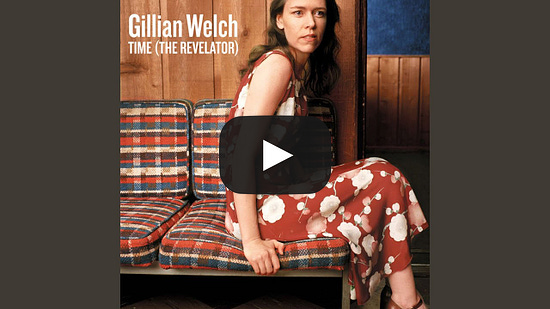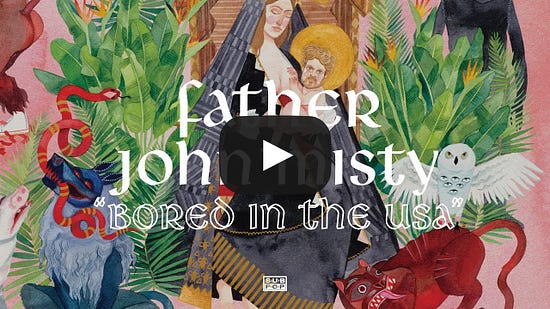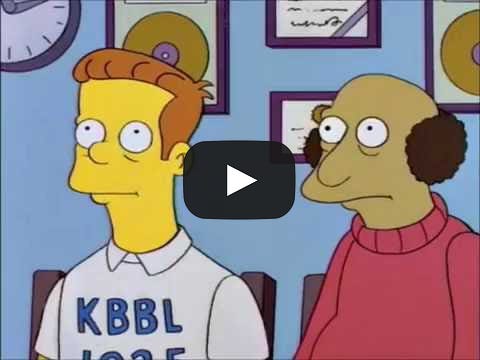For a better reading experience, make sure to listen to the songs before you read the entries. You can see this and previous entries at rorschachmusic.substack.com, “Everything Is Free” by Gillan Welch  We are told that life is divided up into periods of work (for money) and periods of leisure (for escape and/or recuperation from work). But there’s no word in our culture for a third thing: a driven commitment to a valuable practice that cannot be monetized. Or, actually, there is, and it’s the worst word in the English language: a “hobby.” The word “hobby” carries all sorts of connotations, all of them gross. To make music as a “hobby,” for example, means, among other things, that you’re doing it “for yourself.” While one could interpret that phrase as vaguely empowering, don’t be mistaken: it isn’t. Because, in this world, making art for non-monetary reasons places you in a Catch-22. If you want to share made you made with others, you’re now engaged in “vanity publishing.” And if you don’t want to share it with others, it’s either cute and sad (“Oh, you still make music! Good for you”) or it’s weird and masturbatory. Because if it’s not for others, or for cash, what’s the point?¹ Hanging over all of this is the assumption that people only ever make art “for themselves” because their work isn’t very good. Because, if it was, it would have been seen, recognized, and monetized – right? So deeply ingrained is this belief that even writing this feels embarrassing, like I’m engaged in some pathetic attempt to defend my sad enterprise. I feel this embarrassment acutely because I’ve been the victim of this work/leisure paradigm: I made a couple of albums in my twenties thinking I might do this as a career, but then realized that, as much as I like making music, I don’t like all the other stuff that comes with it if you want to turn it into a career. And, because the paradigm says you must choose between doing it as living or not doing it in any legitimate or serious way, I had to take the thing that mattered to me the most behind the barn and shoot it in the head. But I’ve realized a few things since then: In the twenty weeks I’ve spent writing these entries, I’ve confirmed two things that I’ve always suspected: the first is that music (making it, listening to it, talking about it) gives me meaning and direction. The second is that having a committed practice in which I reflect on things in my life that matter to me, and then assemble those thoughts into a shape that feels correct and pleasing, is incredibly valuable. And I don’t mean valuable in that it gives me pleasure (although it does); I mean that I think it makes me better: healthier, wiser, maybe even kinder, more reasonable, more prone to good judgment. After all, I’m getting to know my head better, which means I use it less like a blunt instrument. Everybody wins. I’ve also come to accept that my surface brain doesn’t do this kind of work naturally. The brain that makes grocery lists and pours cups of tea and sets the thermostat and pushes the lawnmower around is not really interested in dabbling in bigger things; it would rather just turn off. To get my brain to go to a more valuable place takes time, energy, commitment - it’s work. Or to put it another way, it’s not a fucking hobby. In Gillian Welch’s 2001 song “Everything Is Free,” she writes of a similar revelation. On the surface, the song is about Napster, which had launched just a year or two before the song was recorded. This was the moment in which people stopped paying for music, when even successful musicians could no longer rely on the revenue from record sales. Initially, Welch seems to be in the Lars Ulrich camp:
But as the song continues, you realize that Welch actually doesn’t care about the loss of income. Making music never paid well, and she has no aversion to working a “straight job”:
All that has ever mattered to her was freedom: the ability to live the life she wanted to live, rather than the one someone else made her live. This leads to the revelation in the final verse:
She discovers that breaking the ties between art and money is liberating. Everything is free now, but in more than the financial sense: By escaping from the economic world, art-making no longer has to exist in that false dichotomy between “professional” and “hobby.” It’s free. At the end of the song, she sings “Everything is free now. That's what I said. / No one's got to listen to the words in my head.” She has also realized that, because there’s no money in art, she’s no longer obligated to share what she has created. It’s just for her, now; her love songs can stay between her and her love. This means she gets to remove pleasing others from the equation when she makes things (I wrote about this two posts ago when I discussed the difference between making art and making commodities). So, when Welch sings “if there’s something that you want to hear, you can sing it yourself,” it’s not a rebuke; it’s a gift. Which is where I’m at right now. I’m making things, writing things, singing things, not as a hobby, not as a job, not as a leisure activity, but because I need to do it, I want to do it. I’m getting better at it, and, more importantly, I’m getting better because I’m doing it. “Bored In The USA” by Father John Misty  In his very long and very good song “Leaving LA,” Father John Misty (real name Josh Tillman) sings “Oh, great, that's just what we all need: Another white guy in 2017 who takes himself so goddamn seriously." He’s not entirely wrong. It’s tricky writing about middle-class white guy problems, because people have much worse things going on. That said, it’s not like exploring the inevitable soul-death caused by our neo-liberal capitalism nightmare society is entirely a waste of time. Still, this song almost doesn’t work. Pointing out the absurdity of our capitalist system can so easily make a songwriter look simultaneously smug and stupid, as if they believe themselves to be the only ones to realize what the rest of us poor saps have missed. Tillman made this very mistake himself on his awful song “Pure Comedy,” which tries to take on everything wrong in the world from basic biology to religion, and includes the timeless lines “Where did they find these goons they elected to rule them? / What makes these clowns they idolize so remarkable?” which, let’s be honest, is DJ 3000-level satire).  But this song does work, and it’s precisely because Tillman is not standing outside of the situation, looking down at the rest of us idiots. He’s not commenting on other people’s lives; he’s sharing the horror of finally realizing his own mistakes. The song, then, tries to capture both the terror and sadness of realizing that the life we’ve bought into was a trap, and will bring us only misery. The music and the vocal delivery do most of the work of selling this horror. This isn’t the self-aggrandizing, swirling preacher music of “Pure Comedy”; instead, it’s a tender ballad delivered with real sadness and beauty, so that the arch-irony of the lyrics never quite becomes insufferable (although, again, they almost do). Every time the song is about to become either too self-pitying or too smug, he reins it back in, just at the right time. The song hits peak pathos in the final bridge. He sings “Is this the part that I get all I ever wanted? Who said that? Can I get my money back?” and follows this with the big finale:
At the end of each of these lines, he adds a laugh track, like from a sitcom. This, again, shouldn’t work: it should be an intellectual gimmick that undermines the emotional integrity of the song – but that’s not the effect at all. Instead, it sells the feeling that we’re all stuck in some awful play, while the world laughs at the ridiculous decisions we fell into making. It’s the musical equivalent of an Ionesco play, where horror and absurdity collide. His amazing performance of the song on Letterman underscores this perfectly:  Tillman doesn’t always get it right – he’s sometimes too saccharine, sometimes too smug – but when he nails it, like he does here, it’s a masterclass. (Except for that line “Save me, White Jesus,” which is terrible). 1 My favorite poem of all time – “Vers De Societé” by Philip Larkin – is about how society frowns on solitary endeavors. You should read it. You can read older entries on the Rorschach Music website. You can hear Jim's own music on his other site, Jim Clements Music. If you liked this post, please share it! |
Week 22: Money
July 27, 2022
0

